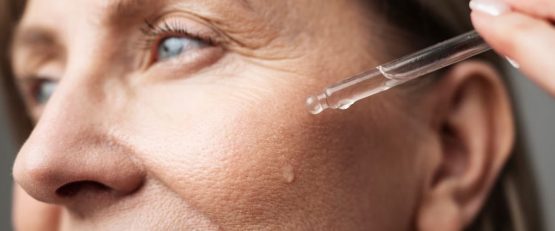- You have no items in your shopping cart
- Continue Shopping

Introduction
As nurses tirelessly navigate the challenges of their profession, many are turning to CBD to explore its potential advantages. This article aims to provide nurses with a comprehensive understanding of CBD, its possible benefits, safety considerations, and how it might fit into their demanding routines. However, it’s crucial to stress that seeking professional advice before incorporating CBD is paramount, given nurses’ unique roles and responsibilities.
Understanding CBD and Its Properties
CBD, derived from the hemp plant, is one of the many compounds known as cannabinoids. Unlike its counterpart THC, CBD is non-psychoactive, meaning it does not induce the “high” associated with marijuana use. CBD isolate from hemp-derived CBD containing less than 0.3% THC is considered legal in Canada. CBD comes in various forms, including oils, capsules, edibles, and topical creams, offering nurses a range of options to explore.
Potential Benefits of CBD for Nurses
Nurses face the daily demands of a high-stress profession, and CBD offers potential advantages that can cater to their unique needs. Here are some potential benefits of CBD for nurses:
- Stress Reduction: Research suggests that CBD may help alleviate stress and anxiety, providing nurses with a natural way to manage the pressures of their job.
- Improved Sleep Quality: Nursing schedules can be erratic, impacting sleep patterns. CBD might aid in improving sleep quality, ensuring nurses get the rest they need to perform at their best.
- Muscle Soreness Relief: The physically demanding nature of nursing can lead to muscle soreness and discomfort. CBD’s anti-inflammatory properties could offer relief, enhancing nurses’ physical well-being.
By exploring these potential benefits, nurses can consider incorporating CBD into their routines as a means of promoting their overall health and well-being.
Safety and Legal Considerations
Before incorporating CBD into their routines, nurses should prioritize consulting healthcare professionals. This is especially important considering nurses’ rigorous schedules and responsibilities. Potential risks and side effects of CBD include interactions with other medications and individual sensitivities, underlining the necessity of expert guidance. It’s equally important to choose reputable CBD brands and products to ensure quality and safety.
CBD Usage in High-Stress Environments
The demanding healthcare environment can take a toll on nurses’ mental and emotional well-being. CBD might offer support in managing on-the-job stress, improving focus, and coping with emotional fatigue. While personal experiences with CBD can vary, some nurses have reported finding relief from the emotional strain associated with their profession.
Incorporating CBD Safely into Nursing Routines
Incorporating CBD into nursing routines requires a thoughtful and cautious approach to ensure safety and effectiveness. Here’s a practical guide for nurses looking to integrate CBD:
- Start Low and Slow: Begin with a low CBD dosage to gauge individual reactions and tolerance levels.
- Monitor Adverse Effects: Pay close attention to any adverse effects or changes in well-being when introducing CBD.
- Consult Healthcare Providers: Regular communication with healthcare professionals is essential. Discuss your interest in using CBD and seek their guidance on dosing and potential interactions.
- Observe Impact: Track how CBD affects your work performance, mood, and overall health. Adjust the dosage if necessary, based on your observations and healthcare provider’s advice.
By following these steps, nurses can incorporate CBD into their routines with confidence, optimizing its potential benefits while prioritizing their safety and well-being.
Addressing Concerns and Misconceptions
There are common concerns and misconceptions surrounding CBD that nurses should be aware of. Firstly, CBD products derived from hemp typically contain only trace amounts of THC, reducing the likelihood of triggering a positive drug test. Secondly, concerns about professionalism and workplace regulations should be discussed with employers and supervisors. Lastly, while CBD dosing lacks standardization, healthcare professionals can help guide appropriate usage.
Collaborating with Healthcare Providers
Engaging healthcare providers in discussions about CBD use is pivotal. Nurses should initiate conversations, sharing their interest in trying CBD and seeking input on its potential benefits and risks. Healthcare professionals can provide personalized guidance, taking into account individual health considerations and medication interactions.
Conclusion
Incorporating CBD oil into nursing routines requires careful consideration and consultation with healthcare professionals. While CBD holds promise for alleviating stress, enhancing sleep, and managing discomfort, nurses must prioritize their well-being by seeking expert advice. In the dynamic landscape of CBD regulations and research, staying informed is essential. As nurses continue their dedicated work, exploring potential tools for self-care, such as CBD, can contribute to their overall health and resilience. Check back on our website to stay informed and updated on the latest developments with CBD oil in Canada.
Disclaimer
This article is intended for informational purposes only and does not constitute medical advice. Nurses considering CBD should consult with qualified healthcare professionals to make informed decisions based on their individual circumstances. The field of CBD research and regulations is continuously evolving, and readers are encouraged to stay updated on the latest information.







